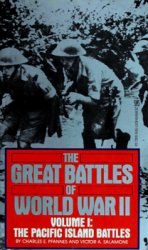The first Europeans to come in large numbers to the islands were the Portuguese, who wanted to profit by trading in the islands' spices, such as nutmeg, mace, and cloves. Seizing the spice-rich islands from Muslim traders, the Portuguese established forts and trading posts that stretched from the Straits of
Hormuz in the Middle East to the island of Macao off the South China coast.
In the islands that later became Indonesia the Portuguese established a number of strongholds, including a fort at Malacca, which controlled passage through the Strait of Malacca. Portugal's most lasting influence was on the island of Timor, part of which remained a colony of Portugal until 1975 and which Indonesia forcibly took over in 1976.
In 1580 the kingdoms of Portugal and Spain came under a single ruling family. A year later the Netherlands, whose people are known as the Dutch, won independence from Spain. The Netherlands was not a kingdom like Portugal but a republic devoted to banking, commerce, and trade. The new nation quickly became a major maritime power. In 1596 a Dutch fleet visited the Indonesian islands and returned home with spices. In 1602 Dutch companies involved in trade in the region joined together to form the United East India Company.
The Dutch Parliament, the governing body of the Netherlands, gave the East India Company a wide range of powers, including the authority to establish fortresses, govern people in areas in regions under the company's control, wage war, and make treaties. The first governor general of the company, Jan Pieterszoon Coen, took the port of Jayakarta in Java and made it the capital of the East India Company. This port, known as Batavia under the Dutch and called Jakarta today, continued to be the political center of the islands and is the modern capital of Indonesia.




 World History
World History









